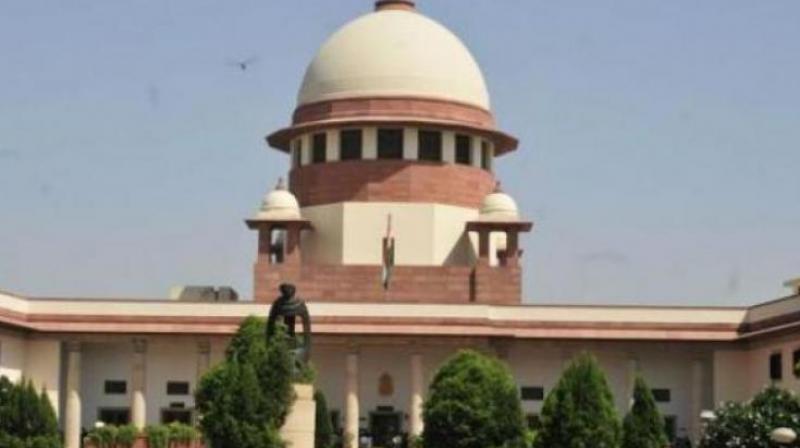Family welfare panels can no longer function as court

Hyderabad: The Supreme Court, while restoring the power to arrest suspects in dowry harassment cases, has also ordered measures to restrict the police from making hasty arrests.
The top court has directed the Directors General of Police to ensure that the officer in charge of investigations into complaints filed under Section 498-A of the Indian Penal Code should be imparted rigorous training with regard to the principles stated by the court relating to arrest.
The Supreme Court in its judgment last week did away with the involvement of family welfare committees constituted by the District Legal Services Authority to deal with cases under Section 498-A, holding that the constitution of such committees and conferring powers on them was not permissible.
Last year, a two-member bench of the Supreme Court in Rajesh Sharma v Union of India held that “Family welfare committees should be constituted at every district by the District Legal Services Authority. The complaints of domestic violence under Section 498A IPC are directed to be vetted by the committee first.”
These committees were to be constituted from among paralegal volunteers, social workers, retired persons, wives of working officers or other citizens.
These committees were to examine cases under Section 498-A, and submit a report to the District Legal Services Authority in a month. The police could carry out investigations and arrest only on the basis of the report of the committee.
The two-member bench held that “in cases where a settlement is reached, it will be open to the District and Sessions Judge or any other senior judicial officer nominated by him in the district to dispose of the proceedings including closing of the criminal case if the dispute primarily relates to matrimonial discord.”
Last week, a three-member bench headed by Chief Justice Dipak Misra, while disposing of a petition by an NGO, Social Action for Manav Adhikar, held that the family welfare committee was an extra-judicial authority, which cannot exercise powers and functions of the police and court.
Referring to the power to close the case by the district judge, the bench held that “a criminal proceeding which is not compoundable can be quashed by the High Court under Section 482 CrPC. When settlement takes place, then both the parties can file a petition under Section 482 CrPC and the High Court, considering the bonafide of the petition, may quash the same. The power rests with the High Court.”
Stating that the directions were contrary to the scheme of Code of Criminal Procedure, the bench held that they had the “potential to enter into the legislative field”.
The NGO had moved the petition seeking to create a uniform system of monitoring and reviewing incidents of violence against women under Section 498A and rehabilitation of victims and their children at the central, state and district levels.
The bench said, “At this stage, we are obligated to state that we are not in agreement with the decision rendered in Rajesh Sharma v Union of India because we are disposed to think that it really curtails the rights of the women who are harassed under Section 498A of the IPC. That apart, prima facie, we perceive that the guidelines may be in the legislative sphere.”

